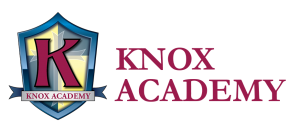Why a 4-day?
In his 1940’s essay Membership, C.S. Lewis contrasts the differences in membership in a spiritual body like that of the Christian Church and membership in secular institutions. As Christians, we are members with one another in very spiritual ways, explicitly discussed in Scripture. Also considered is that as human beings we share membership in many collective activities like neighborhoods, schools, nations, gyms, and businesses. Obviously, this second, “lower”, form of membership, as C.S. Lewis describes it, is with and without those same spiritual ties, as we share this membership with many people who may or may not share a Christian faith.
A private Christian school like Knox represents a unique institution, as it is not explicitly the “Church” but still endeavors to bring Christians together as its members. Nevertheless, as a “secular” institution, C.S. Lewis words are useful to us.
“As personal and private life is lower than participation in the Body of Christ, so the collective life is lower than the personal and private life and has no value save in its service. The secular community, since it exists for our natural good and not for our supernatural, has no higher end than to facilitate and safeguard the family, and friendship, and solitude. To be happy at home, said Johnson, is the end of all human endeavor. As long as we are thinking only of natural values we must say that the sun looks down on nothing half so good as a household laughing together over a meal, or two friends talking over a pint of beer, or a man alone reading a book that interests him; and that all economies, politics, laws, armies, and institutions, save insofar as they prolong and multiply such scenes, are a mere ploughing the sand and sowing the ocean, a meaningless vanity and vexation of spirit. Collective activities are, of course, necessary, but this is the end to which they are necessary. Great sacrifices of this private happiness by those who have it may be necessary in order that it may be more widely distributed.”
In an effort to affirm our commitment to our stated mission, Knox Academy is going to implement a 4-day schedule next year, leaving longer weekends for all families involved to enjoy and pursue “family, friendship, and solitude.” While this schedule will take adjustment for all those involved, it is our commitment to you that academic standards will remain high, education time will be efficient, and that instructional hours will meet the required standards.
In Ephesians 6:4, Apostle Paul admonishes fathers to raise their children in the nurture and admonition of the Lord. As an institution that seeks to provide an educational service to parents engaged in this God-given task, Knox Academy takes very seriously the role of mothers and fathers in educating their own children. We believe that our 4-day schedule next year will lend itself to an important pattern of instruction at Knox that can more readily support and strengthen the homes of our students, our teachers, and those of the Rogue Valley.
In practical ways, this schedule will allow teachers more time to keep up on home life and more time to prepare for the classroom experience which will result in a stronger day and lifestyle of learning. It will allow us to keep the tuition low as we build our faculty and program. And it will give our school families more time to schedule family activities and to engage in learning together without feeling like they have to choose between Knox and the home.
Our children grow up fast! We have no time to lose “ploughing the sand or sowing the ocean.” We are a classical Christian school, and the educational goals of Knox Academy should not be eclipsed by the modern goals of progressivism and the industrial revolution, whose means and patterns are imposed upon us continually. As we develop as a school, we want to prioritize the important things like family, friendship, and solitude, trusting that these things lend themselves to deeper membership in that higher institution, which is the Body of Christ.
